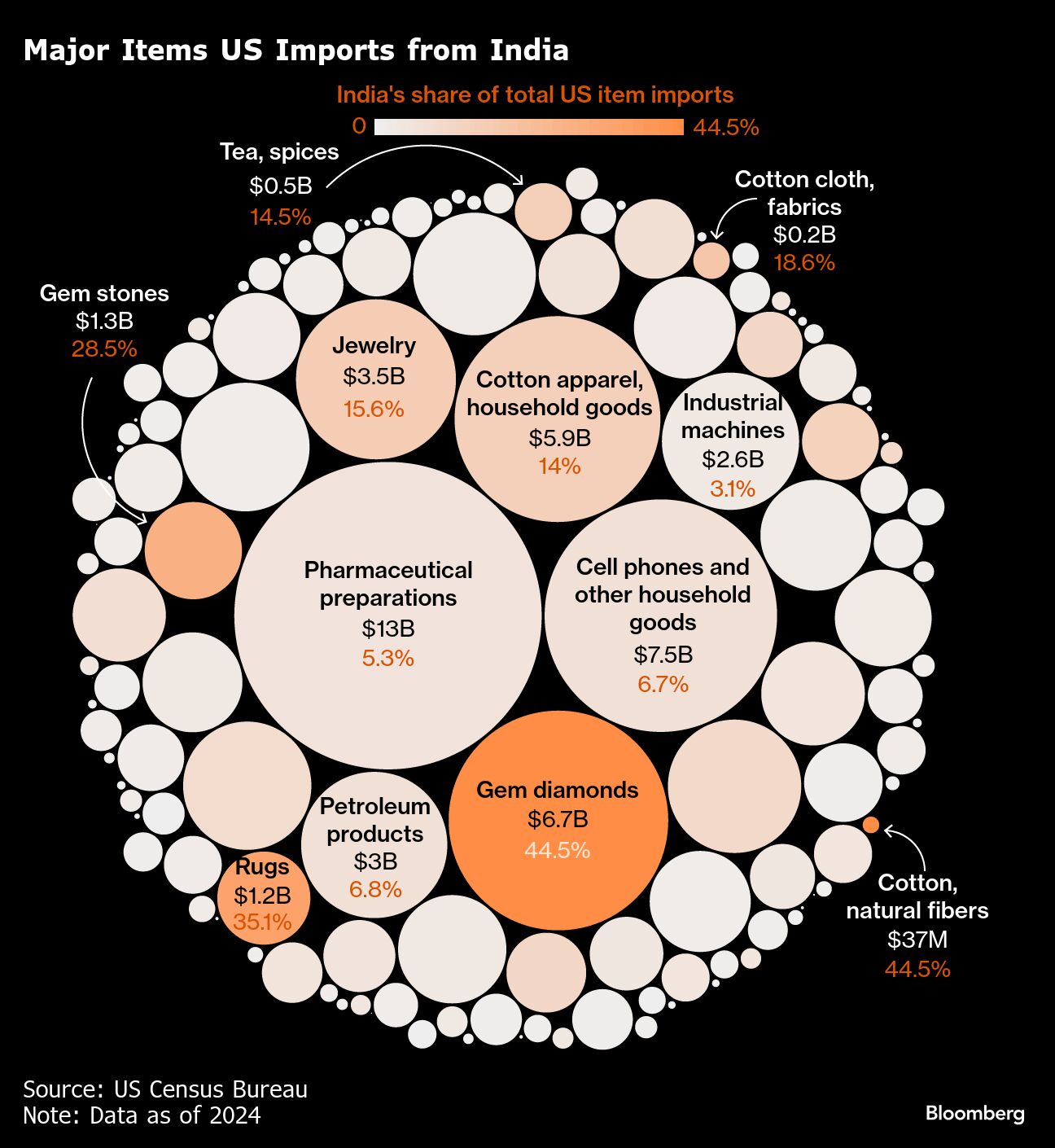
Indian businesses are looking to expand production in Africa for exporting to the US, after President Donald Trump hit the South Asian nation with one of the steepest levies globally as punishment for purchases of Russian oil.
GAP Inc. supplier Gokaldas Exports Ltd. and premium garments maker Raymond Lifestyle Ltd. are among the companies planning to leverage tariffs of as low as 10% in some African countries, compared to the 50% levy on Indian exports. Diamond and jewelry exporters are also looking into expanding on the continent.
Indian companies are scrambling to offset the pain from US tariffs and looking for workarounds to continue servicing their American clients. Labor-intensive sectors like jewelry and apparel are the hardest hit and US levies may reduce exports of certain goods by as much as 90%, according to a note from Bloomberg Economics this week.
Overall exports from India to the US, its biggest market, may more than halve after the higher tariffs that kicked in on Wednesday, it added. India exported more than $20 billion of textile products, jewelry and diamonds to the US in 2023.

“We will continue to expand in Africa in case of 50% tariffs,” Gokaldas Exports's Managing Director Sivaramakrishnan Ganapathi said in a phone interview, even as he expects the tariff issue between US and India to settle down soon. The apparel exporter has four factories in Kenya and one in Ethiopia. Both these nations face 10% US tariffs.
Meanwhile, Raymond Lifestyle is negotiating with its American customers to ship more merchandise out of the company's Ethiopia plant to alleviate the tariff pain. “We can obviously shift some of the clients to the Ethiopian factory,” Chief Financial Officer Amit Agarwal told Bloomberg.
Dharmanandan Diamonds, a gems exporter based in western Indian city of Surat, will consider boosting production in Botswana if US continues with high tariffs, Reuters reported citing the company's Managing Director Hitesh Patel.
Viable Alternative
Africa has emerged as a viable alternative after Indian firms begun exploring sweeter tariff spots overseas for servicing the US market. Some countries in the continent — such as Ethiopia, Nigeria, Botswana, and Morocco — already give incentives such as tax holidays, apart from customs duty and VAT exemptions. Some are promising sector-specific initiatives and building special economic zones to attract investments.
“African governments are offering compelling incentives such as tax breaks, land concessions, and regulatory facilitation to attract investment in manufacturing and technology transfer,” said Soumya Bhowmick, a fellow at Observer Research Foundation, adding that the trade developments have created a “unique arbitrage opportunity.”
To be sure, any shift in manufacturing operations to the continent will be time consuming as Indian companies need to renegotiate terms with US buyers, even as they see orders deferred or canceled.
Some US customers are not very comfortable taking deliveries from Ethiopia fearing disruptions from potential conflicts, even though labor costs are about a third of India's, according to Agarwal.
That could change as India loses its competitive advantage with these tariffs, he added.
Essential Business Intelligence, Continuous LIVE TV, Sharp Market Insights, Practical Personal Finance Advice and Latest Stories — On NDTV Profit.























